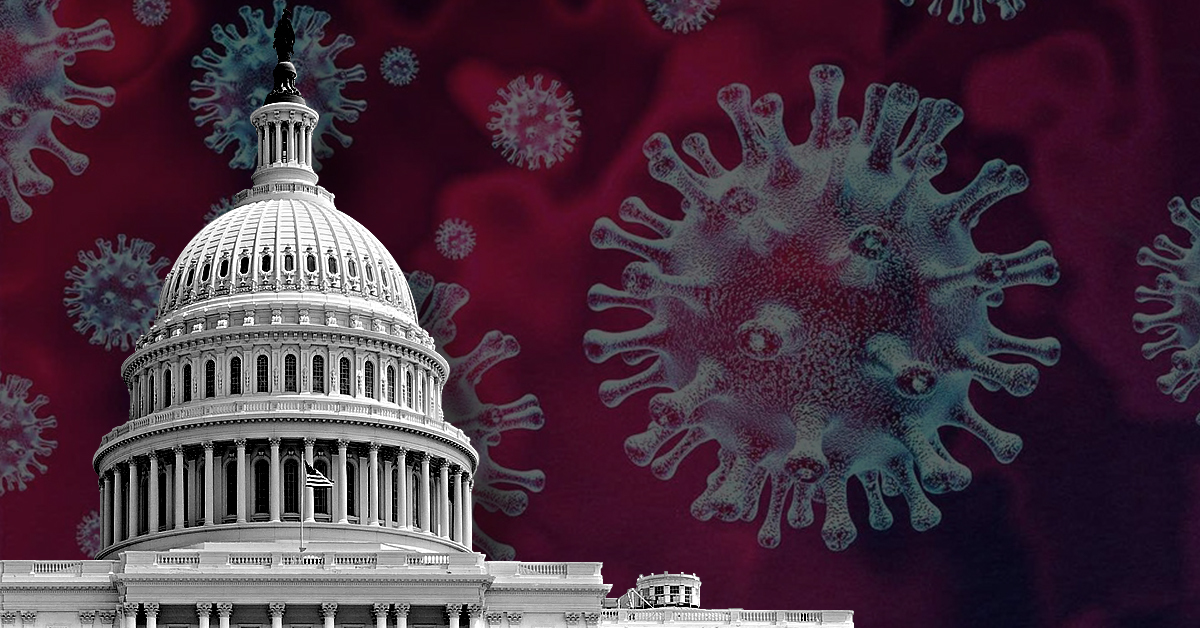
As the world searches for treatments and cures for COVID-19, the U.S., with the most effective intellectual property (IP) rights in the world, is highly likely to be the first to succeed. U.S. biopharmaceutical companies and scientists are working feverishly to find therapies and vaccines for COVID-19. Some drugs are already in clinical trials while others are being used under emergency use authorization to treat patients. Yet, these achievements, and the research that is needed for new medicines in the future, could be impeded if some members of Congress achieve their objective of establishing innovation-killing price controls on biopharmaceuticals.
These legislators would like to use inflationary caps or force the adoption of prices used in countries that employ socialized medicine and ration care to keep costs down. As the President’s Council of Economic Advisors concluded in its February 2018 report, “If the United States had adopted the centralized drug pricing policy in other developed nations twenty years ago, then the world may not have highly valuable treatments for disease that required significant investment.”
These countries’ price controls have severely harmed their biopharmaceutical research and development, which free rides on U.S. taxpayer and private sector research. Even worse, their socialized medicine systems deny their citizens access to new drugs. For the 290 new active substances that became available between 2011 to 2018, Americans got access to 89 percent, while citizens in countries like Denmark, Germany, and Ireland were only able to access 57 percent, 62 percent, and 40 percent of these drugs, respectively.
Thanks to robust IP, our nation leads in biopharmaceutical research and development. The U.S accounts for 58 percent of worldwide R&D, more than 4.5 times second place Japan at 13 percent, and 20 percentage points greater than the next 10 countries combined. Our nation’s intellectual property rights are enshrined in the Constitution, and the First Congress passed legislation to protect those rights, enabling innovation to grow and flourish across all industries throughout American history. In Federalist 43, James Madison wrote that IP rights “belong to the inventors.”
The Founders understood that innovation requires a sufficient return on investment to continue to “promote the progress of science and useful arts,” as stated in the Constitution. Unfortunately, too many in Congress think biopharmaceutical innovation comes cheap.
In response to COVID-19, biopharmaceutical companies are risking millions of dollars on potential therapies and vaccines that may never work effectively to stop the coronavirus. But this is not unusual for these companies, many of whom have experience fighting other coronaviruses like MERS and SARS. For the thousands of investigative new drugs tested, fewer than 12 percent make it through clinical trials and get approved by the Food and Drug Administration (FDA). But scientists and researchers that studied those failed compounds must still be paid and those costs are borne by the drugs that do make it to the marketplace and provide funding for future promising compounds.
Anyone with a modicum of understanding of economics knows price controls distort markets, cause shortages, and do not work, yet somehow far too many politicians think they can reverse economic history. The failure of price controls has been shown by the use of the Babylonian Code of Hammurabi for wages, by the Puritans in the 1630s to establish “just prices,” and by the Nixon administration’s effort to fight inflation and lower food and gasoline expenditures. Today, distortions in the U.S. pharmaceutical marketplace exist due to price controls in government-run programs like Medicaid, the 340B drug-discount program, and the V.A. drug benefit. They have even crept into the privately-run Medicare Part D, with a 70 percent government-forced rebate in the donut hole. Nonetheless, the U.S. still has a commanding and critical lead on the rest of the world.
Price controls, whatever form they come in for pharmaceuticals, will not lower costs and will hurt the innovation needed to produce new miracle drugs for a wide variety of diseases and conditions, from Alzheimer’s to cancer. Efforts to implement them now, perhaps through another coronavirus spending bill, must be rejected. Instead, Congress needs to focus on bringing more market forces into the pharmaceutical marketplace to allow competition and innovation to flourish.
Resources:
